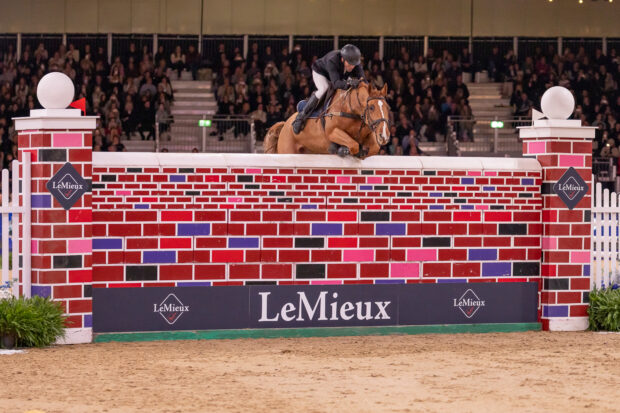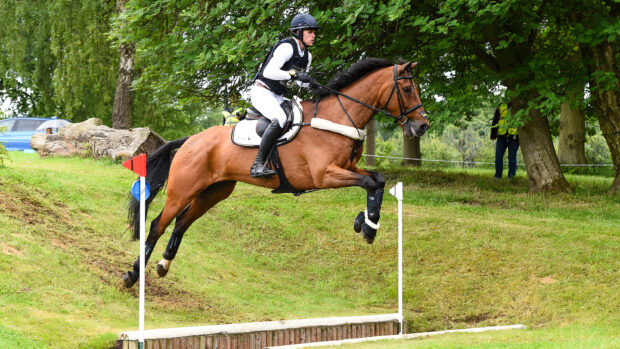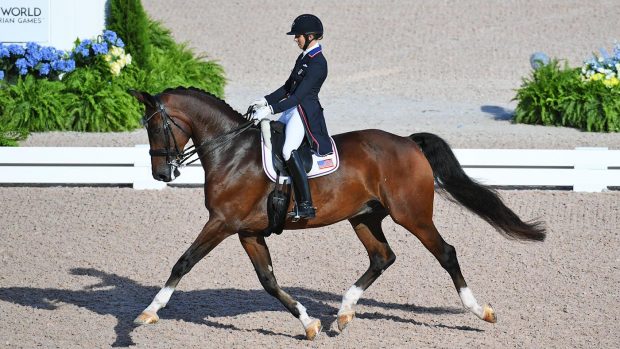Dressage stakeholders have described recent cases of horse abuse in the sport as “a wake-up call for the vulnerability” the discipline faces – as a meeting is set to discuss how to address the challenges.
On 14 February the International Dressage Riders Club (IDRC) published an open letter on its website to the FEI written jointly by the IDRC, International Dressage Trainers Club (IDTC), and International Dressage Officials Club (IDOC) raising concerns about the future of the sport.
The letter stated that the “whole world has now witnessed issues of welfare and terrible cruelty within our wonderful sport”.
“It is correct that cruel practice is exposed, and the influence of social media makes this immediate. By the same token, social media exacerbates negative influence, and it needs to be turned to a positive,” it read.
“The reality is that our sport has now been put at serious risk; the behaviour of the minority has been a gift to the critics of our sport. It has offended any decent human being with love and respect for animals as living creatures. They come first; not the ego of individuals or money. The perception of the sport has been damaged and we need to make a joined-up concerted effort to remedy it.”
The letter adds that “the risk is so significant that it could jeopardise the perception of dressage and para dressage as an Olympic discipline”.
“It is one thing to be thrown out of the Olympics to make room for new sports to be included; but quite another to be thrown out for perceived cruelty and inappropriate conduct,” it reads.
The IDRC, IDTC and IDOC are calling for the FEI to “remedy the current situation”, and to push for “measured and appropriate law enforcement at country level where jurisdiction exists and legal action can be brought”.
IDTC president David Hunt told H&H that the letter was triggered by footage of former Olympic rider Cesar Parra training horses, which has been described by US Equestrian and the FEI as “abhorrent” and “disturbing”. The FEI is investigating Cesar and he has been provisionally suspended.
“We get criticised for things like a slightly short neck or a horse wearing a double bridle, and then there’s things like this going on. There was also the Helgstrand thing as well,” said Mr Hunt, who is referring to Danish broadcaster TV2’s Operation X documentary, which showed abusive training methods filmed undercover at Helgstrand Dressage (news, 30 November).
“We all need to pull together and get this sorted. We are going to have a meeting with the FEI at the World Cup Final (16-20 April) and really discuss things. I think the FEI is in a difficult position, but we have to find a way round it. The main point is that we’re all part of the sport, and we’re all responsible, so we need to find a way that we can all be effective.”
Mr Hunt added that dressage should not be a “dictatorship” in terms of the rider’s relationship with the horse.
“Riders all have a responsibility,” he said. “It’s about a horse and a rider having an amazing relationship. We need harmony between horse and rider, the horse needs to buy into what we’re doing. Some jockeys can keep a horse in a shape and it will do the movements, but if a horse doesn’t buy into it, it’s not the same sport.”
An FEI spokesman told H&H it welcomes the letter, and confirmed it had invited the IDRC, IDTC and IDOC to a meeting at the World Cup Final in Riyadh, Saudi Arabia, to “openly discuss the challenges facing the sport, and the collective solutions the community has at its disposal”.
“This was one of the reasons the FEI established the equine ethics and wellbeing commission, with an aim to assess equestrian sport’s social licence, and through extensive research, community surveys and data-based recommendations, we have already made some important changes within rules and are committed to continuing this process of self-evaluation and critical review,” said the spokesman.
“Collaboration is key to this process and the FEI is excited to work closely and together with its stakeholder groups to establish a unified strategy and drive meaningful change – from both a legislative and cultural perspective – that will guarantee horse welfare is prioritised in all decision-making and sports-related initiatives, with an environment conducive to reporting and sanctioning abuse.”
The spokesman added that, as a governing body, the FEI has the “responsibility to ensure there are systems in place to uphold these values”.
“We will continue to work closely with our stakeholders to further strengthen the processes in place and ensure horse welfare is never compromised or overlooked in the name of sporting ambition or prowess,” he said.
You might also be interested in:

Former Olympic rider suspended as ‘appalling’ training video investigated

‘We take allegations of horse abuse very seriously’: FEI responds to Helgstrand Dressage documentary

Subscribe to Horse & Hound magazine today – and enjoy unlimited website access all year round
Horse & Hound magazine, out every Thursday, is packed with all the latest news and reports, as well as interviews, specials, nostalgia, vet and training advice. Find how you can enjoy the magazine delivered to your door every week, plus options to upgrade your subscription to access our online service that brings you breaking news and reports as well as other benefits.




